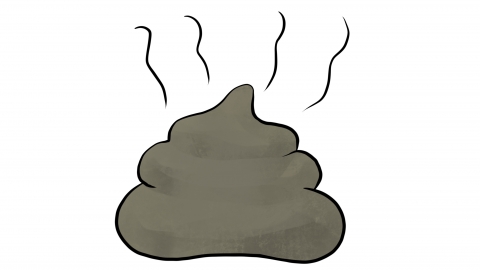What causes sticky and viscous stool?
Generally, sticky stools may be caused by factors such as excessive consumption of greasy foods, insufficient water intake, functional dyspepsia, irritable bowel syndrome (IBS), or ulcerative colitis. If discomfort occurs, it is recommended to seek timely medical evaluation and treatment at a reputable hospital. Specific causes are analyzed as follows:

1. Excessive Consumption of Greasy Foods
Long-term intake of fried foods, fatty meats, and other greasy foods increases fat content in the stool, disrupting its normal form and leading to sticky, poorly formed bowel movements. Adjusting the diet by reducing greasy food intake and increasing fiber-rich foods such as celery, spinach, and oats can help improve stool consistency.
2. Insufficient Water Intake
Inadequate daily fluid intake leads to reduced moisture in the intestines. As stool remains in the intestine, excessive water absorption causes it to become dry and sticky. It is recommended to drink 1500–2000 mL of water per day in small amounts throughout the day to promote intestinal motility and maintain moist, easily passed stools.
3. Functional Dyspepsia
Slowed gastrointestinal motility and insufficient digestive enzyme secretion prevent complete digestion and breakdown of food. Undigested food residues entering the intestine alter stool composition, resulting in sticky stools, often accompanied by post-meal bloating. Under medical guidance, medications such as Jianwei Xiaoshi tablets, multienzyme tablets, or mosapride citrate tablets may be used. Light walking after meals and avoiding prolonged sitting are also beneficial.
4. Irritable Bowel Syndrome (IBS)
Intestinal dysfunction influenced by emotional stress and psychological factors leads to abnormal intestinal motility and secretion, disrupting stool water balance and causing sticky stools. This condition is often associated with abdominal pain and changes in bowel habits. Under medical supervision, medications such as pinaverium bromide tablets, bifidobacterium triple viable capsules, or compound glutamine enteric-coated capsules may be prescribed. Maintaining emotional stability and minimizing anxiety are also important.
5. Ulcerative Colitis
Inflammation damages the intestinal mucosa, causing ulcers, increased mucus secretion, and impaired absorption. This results in stools containing large amounts of mucus, appearing sticky, and frequently accompanied by bloody or purulent diarrhea and abdominal pain. Under medical guidance, medications such as mesalazine sustained-release tablets, olsalazine sodium capsules, or prednisolone tablets may be prescribed. In severe cases such as intestinal perforation, total colectomy may be required, followed by careful postoperative bowel care.
In daily life, maintain a light and balanced diet and avoid long-term consumption of high-fat, monotonous foods; follow a regular sleep schedule to prevent sleep deprivation from affecting intestinal function; learn to manage emotions and reduce stress-related impacts on the gut; and seek prompt medical evaluation if sticky stools persist for more than one week or are accompanied by other symptoms.








